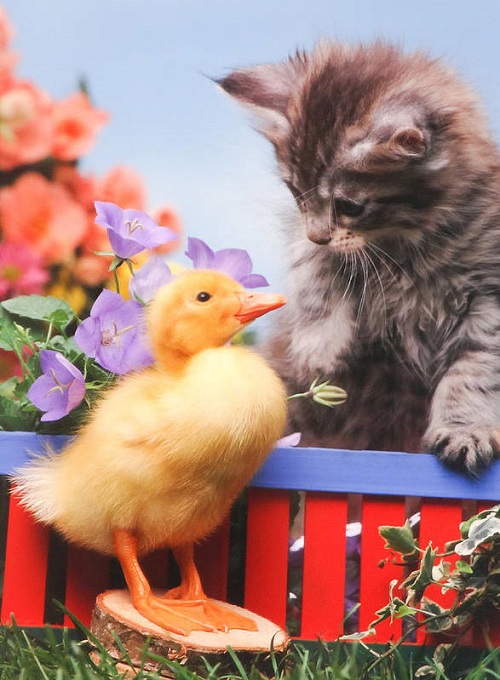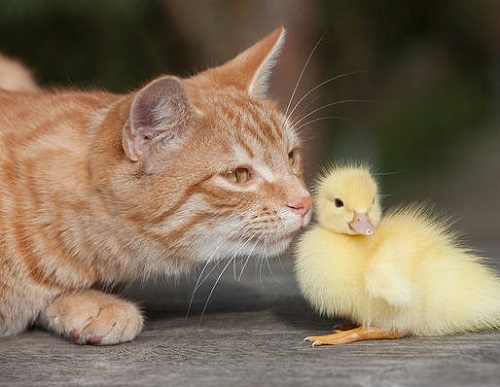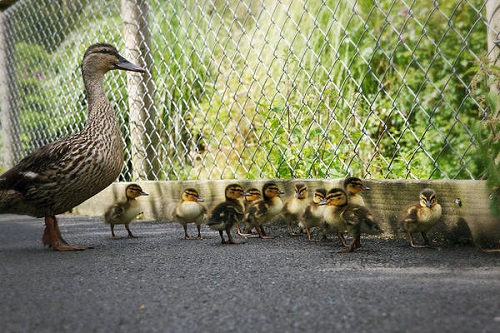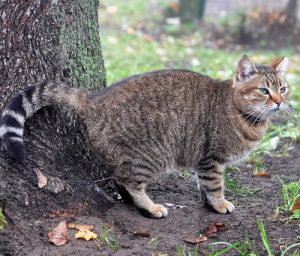Do Cats Eat Ducklings? Get insights on cat behavior, diet, and their interaction with adorable ducklings in this engaging read.
The feline hunting instinct is well known, but Do Cats Eat Ducklings? In this article, you’ll learn about the dynamics between these two creatures, shedding light on the potential risks and necessary precautions.
Can Cats Eat Pastrami? Find out here
The Relationship Between Cats And Birds

The relationship between cats and birds is complex and can vary depending on different factors. While kitties are natural hunters and birds are potential prey, approach this topic with an understanding of the broader context and potential impacts on bird populations.
- Hunting Instinct: Cats have a strong hunting instinct, and their predatory nature drives them to chase and capture small animals, including birds. This instinct is deeply rooted in their evolutionary history as efficient hunters.
- Impact on Bird Populations: Free-roaming domestic cats, as well as feral kitties, can pose a threat to bird populations, particularly in areas where birds are abundant and easily accessible. Their hunting activities can contribute to bird mortality, especially among vulnerable species, young birds, or during nesting seasons.
- Cat Ownership and Bird Safety: Responsible cat ownership plays a crucial role in minimizing the impact on bird populations. Keeping cats indoors or providing them with supervised outdoor access can prevent predation on birds.
- Cat Containment and Bird-friendly Gardens: Creating bird-friendly environments can also reduce the risk to birds. This includes designing gardens with native plants and providing shelter and cover for birds. Implementing cat containment measures like fences or deterrents to limit cat access to bird habitats is also a good option.
Do Cats Eat Ducklings?

Yes, cats can eat ducklings. Felines have a natural hunting instinct, and if given the opportunity, they may view ducklings as potential prey. The small size and vulnerability of ducklings make them particularly attractive to kitties. However, do note that not all cats will actively hunt or consume ducklings, as individual hunting behavior can vary.
How To Protect Ducklings From Cats?

Protecting ducklings from cats requires taking proactive measures to create a safe environment for them. Here are some strategies to help safeguard ducklings from potential predation by cats:
- Secure Enclosure: If you have pet ducks or are raising ducklings in an outdoor setting, consider providing them with a secure enclosure. It should have sturdy walls or fences that prevent cats from entering and reaching the ducklings.
- Elevated Nesting Area: When ducklings hatch, provide them with an elevated nesting area. This can be a platform or structure that is difficult for a feline to access. It should be high enough to keep the ducklings out of a cat’s reach but still allow easy access for the adult ducks.
- Fencing or Netting: Install cat-proof fencing or netting around areas where ducklings spend time, such as ponds or outdoor enclosures. Ensure that the fencing or netting is tall enough and extends underground to deter cats from climbing or digging under it.
- Supervised Outdoor Time: If ducklings roam freely outdoors, ensure they are under close supervision. Keep a watchful eye on them and intervene immediately if you see any signs of a cat’s presence or potential danger.
- Scare Tactics: Use deterrents or scare tactics to discourage cats from approaching the area where the ducklings are located. This includes motion-activated devices, ultrasonic repellents, or visual deterrents like shiny objects or scarecrows.
- Natural Predation Defense: Enhance the natural defense mechanisms of the ducklings by providing hiding spots, such as dense vegetation or shrubs, where they can hide in danger. These hiding spots can provide temporary protection until the threat has passed.
- Minimize Attractants: Avoid attracting cats to the area where the ducklings are by removing potential food sources. By eliminating these attractants, you can reduce the likelihood of kitties being drawn to the area.
Understanding Cats And Their Natural Instincts
Cats are fascinating creatures with a range of natural instincts. These instincts are deeply ingrained in their genetic makeup and play a significant role in their behavior. Let us explore some of these instincts:
- Hunting Instinct: Cats have an innate drive to hunt and capture prey. This instinct is rooted in their evolutionary history as solitary hunters. They display behaviors such as stalking, chasing, pouncing, and capturing prey.
- Prey Drive: Prey drive refers to a cat’s intense motivation to pursue and catch prey. It involves a combination of keen senses, agility, and a strong desire for the thrill of the chase. This instinct varies in intensity among individual cats and can be influenced by factors like breed, genetics, and early experiences.
- Play Instinct: Play behavior in felines is closely linked to their hunting instinct. Kittens, in particular, engage in play to practice and refine their hunting skills.
- Territory Instinct: Cats are territorial animals, and they have a strong instinct to establish and defend their territory. They mark their territory with scent markings, such as urine spraying and scratching, to communicate ownership and ward off potential intruders.
- Grooming Instinct: Kitties are meticulous groomers, and this instinct serves multiple purposes. Grooming helps them maintain cleanliness by removing dirt and debris from fur. It also helps distribute natural oils, regulates body temperature, and serves as a form of self-soothing and relaxation.
- Hiding Instinct: Cats possess a natural instinct to seek out safe and secluded spaces. This behavior stems from their ancestral need to find secure hiding spots to avoid predators.
- Climbing Instinct: Felines are excellent climbers, thanks to their retractable claws and agile bodies. They have an instinctual ability to navigate vertical spaces, which serves various purposes, such as escaping danger and accessing vantage points for hunting.
Do Cats Eat Ducklings? Quick Takeaways
- Cats have natural instincts that include hunting, prey drive, play, territory marking, grooming, hiding, and climbing.
- Felines have a strong hunting instinct and can view ducklings as potential prey.
- Protecting ducklings from cats requires providing a secure enclosure or elevated nesting area.
- Install cat-proof fencing or netting to prevent cat access to duckling areas.
- Supervise outdoor time for ducklings and intervene if cats are present.
- Use scare tactics or deterrents to discourage kitties from approaching ducklings.
- Provide hiding spots for ducklings to seek shelter if they sense danger.
- Minimize attractants that may draw felines to the area where ducklings are located.
- Responsible cat ownership and creating bird-friendly environments can help mitigate the risk to bird populations.



